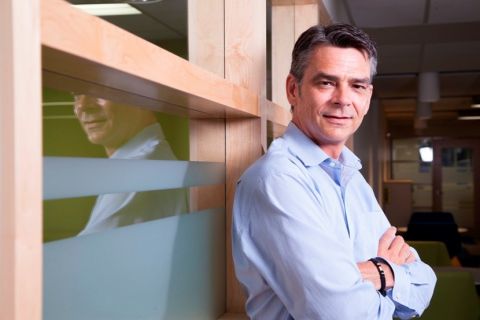
When Professor Art Cockfield started his new position as Associate Dean (Academic Policy) on March 9, he jumped right into action helping to plan the school’s response to COVID-19. It’s a good thing this Law’93 grad, an award-winning tax law scholar and a policy consultant, was familiar with the role. His first stint as Associate Dean was from 2006 to 2008, when he oversaw both student and faculty relations, as well as the graduate program. This time around, his leadership position focuses on policies involving such issues as academic integrity, privacy, assessment and grading for JD and combined degree students. While overseeing all that and doing his own research, he’s also involved in planning his alma mater’s next responses to the global pandemic.
With the winter 2020 term under his belt, Associate Dean Cockfield discusses his experiences and observations over the past two months in his new senior administrative position, and shares his plans.
How has the COVID-19 situation affected your role as Associate Dean (Academic Policy)?
The pandemic dramatically altered my role. It forced me, within a team environment, to focus on shifting the entire faculty to remote teaching and to do it quickly because there were only three weeks left of term when in-person classes were cancelled. After this cancellation was announced, Shaun Leung (IT Support Assistant) and I presented remote teaching options to faculty in a Zoom seminar. Ultimately, Zoom was the best technology for most faculty, but we really saw a lot of different approaches.
Like many professors, I had to learn these technologies on the fly for my own class and I’m now much more familiar with distance learning technologies. The pandemic has opened my eyes to the potential of remote teaching, but also made me aware of some of the challenges of both remote teaching and online exams.
What has stood out for you in your new role during the pandemic?
Seeing everybody pull together through the crisis and the level of trust each person has for each other has been a truly inspiring part of my career. First, I have been impressed with how professional and capable our various staff members are. Through the hard work of our staff in equity services, teaching and learning, student services and IT, we were able to successfully shift to remote teaching and to remote exams. Another thing I’m really grateful for is the amazing support from my faculty colleagues. Without exception, they all came through and successfully shifted from regular in-class teaching to remote teaching in a week’s time; that was very impressive. Third, Dean Mark Walters has been an exemplary leader in these difficult times. He is very inspiring in terms of his work ethic and his dedication to faculty, staff, students and alumni. And, of course, there is a remarkable sense of community among our students.
What are you looking forward to most?
I’m looking forward to finding ways to enhance the Faculty’s relationship with our students via remote technologies as I think there is potential to move forward. One idea we are exploring with our IT staff is the concept of a virtual Law House: a space online where all members of the Queen’s Law community can gather to meet. There could be a networking aspect where law graduates could help students and each other with their careers.
What are your priorities for the JD academic program?
In the short term, I’m working with others on improving the ways we teach online and to build on and strengthen our students’ sense of community – a clear success factor for our law school. In the medium term, we’re thinking more broadly about how a hybrid teaching model, which involves both in-person classes and distance learning technologies, might best address student needs.